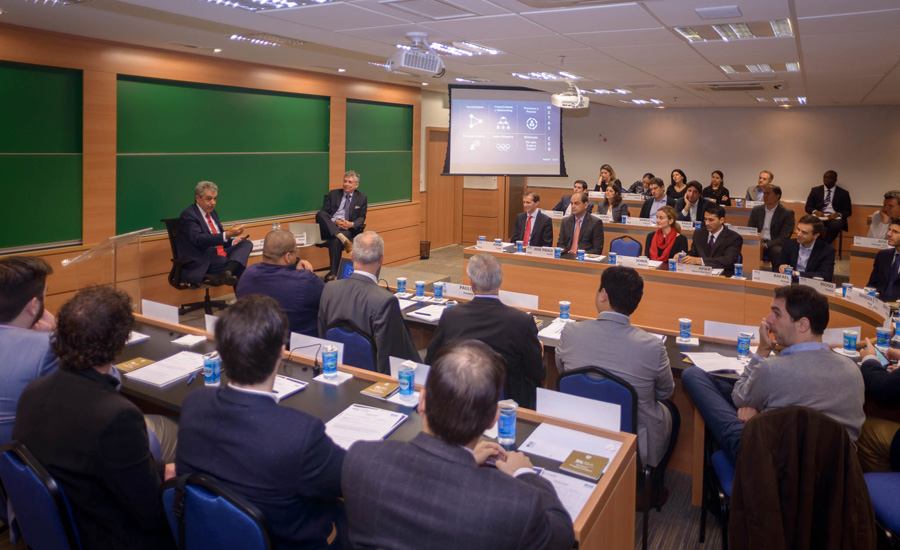
"The long distance market is doomed."
So says José Formoso, CEO of one of LatAm’s largest telecoms, Embratel. Formoso gave a keynote address at the IESE MBA50th Anniversary celebrations in São Paulo this month.
He was keen to stress, however, that the disappearance of the long distance market is not something that keeps him awake at night.
"If you create engaged teams, and embrace change," he said, "you can ensure your company remains relevant in a fast-shifting market."
And Formoso should know. Since taking the reins in 2008, he has already successfully navigated numerous changes and challenges. Four years ago, Embratel began a merger process with two other telecoms: first the buy-out of NET, and then a merger with Claro – "transformations," he said, that had produced significant internal and external shifts.
Building Engaged Teams
Key to Embratel’s success in weathering these changes said Formoso is an "engaged team." And this in turn is built on the "basic pillars" of positivity, connectivity and people.
At times of stress – the kind of stress produced by mergers and the like – it’s imperative to watch for "culture shocks," says Formoso, and to respond with positivity.
Networking should be promoted, he believes, to create a culture of connectivity and buy-in." People like to learn and help each other. Brazilians are very supportive of each other in the workplace," said Formoso. "And this is the kind of behavior that should be encouraged."
As for his third "pillar," he believes that while processes are important, people are more so: employees as well as customers.
"The secret of maintaining the ideal relationship with the customer – and it’s really not such a great mystery – is to fulfill the client’s expectations. Don’t promise more than you can deliver. But always deliver what you promise."
Innovation in the Business Model
With the long-distance market under threat, Formoso says that innovation is key to survival, citing a recent shift in strategy and business model.
"Brazil is a country where bandwidth capacity grows by more than 100 percent per year. The market was increasing – but we weren’t making money."
The solution has been to turn to other companies, analyze their needs and figure out how Embratel could help them. "This company was created to help connect people," he said.
"Our new direction is to converge telecom and IT services with enterprise mobility and data-center services aimed at businesses."
This shift in focus has required some changes in the team.
"We recruited facilitators and people who have the capacity to work in a big team," said Formoso. To ensure the buy-in and engagement of the workforce, more than 350 employees participated in a group discussion to share experiences and best practices.
As a strategy it seems to have paid off: since the third quarter of last year, Embratel has successfully reversed subsequent deficits. It is not yet ahead of the competition, but starting to see positive results, Formoso said.
Despite the concrete turnaround, it’s still a time for "managing costs and harnessing opportunities," he stresses.
Investment in an improved network for next year’s Olympic Games in Rio de Janeiro will be one such opportunity.
"During difficult times, there are always opportunities. What makes the difference is focusing on the right track."